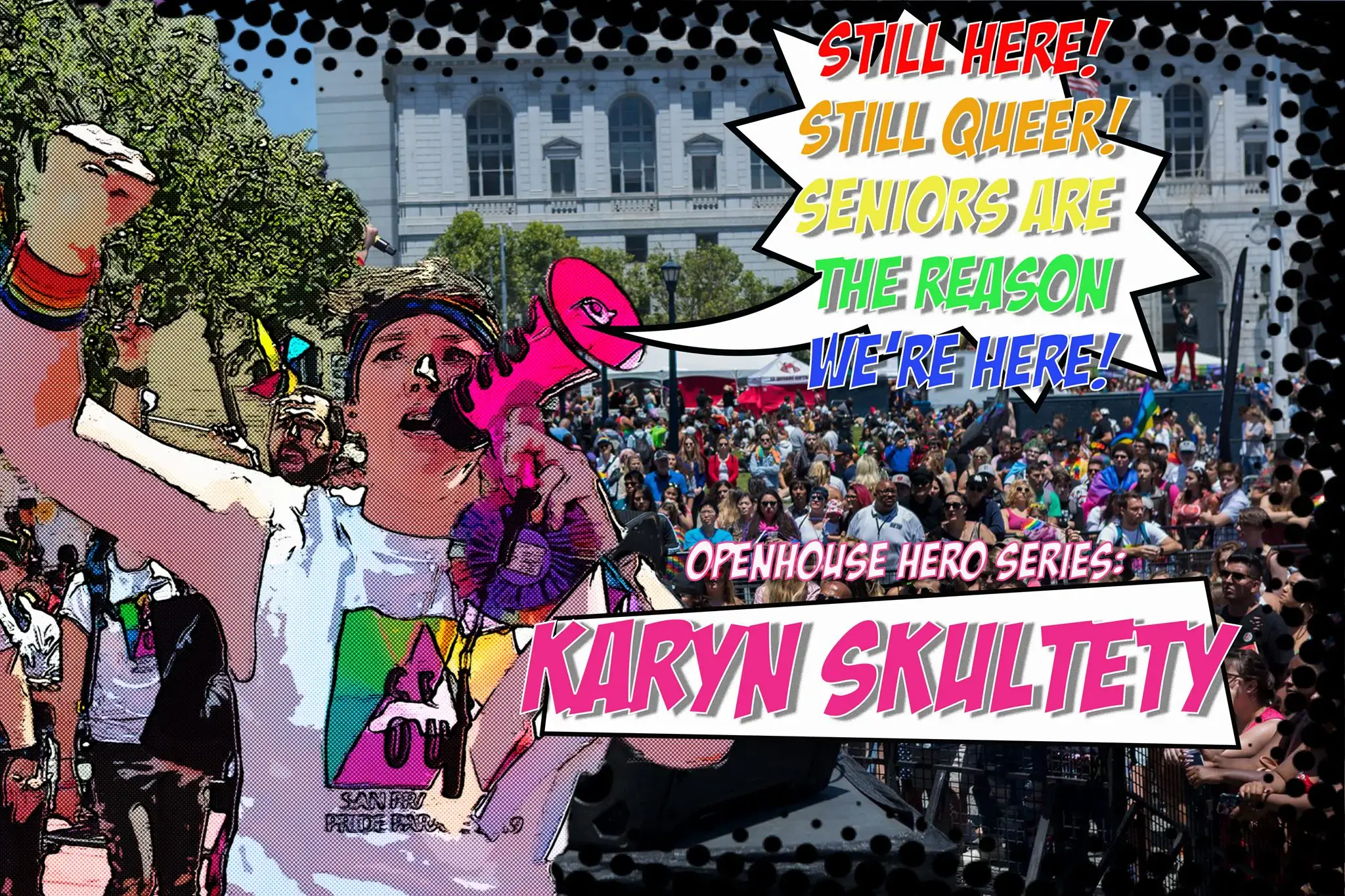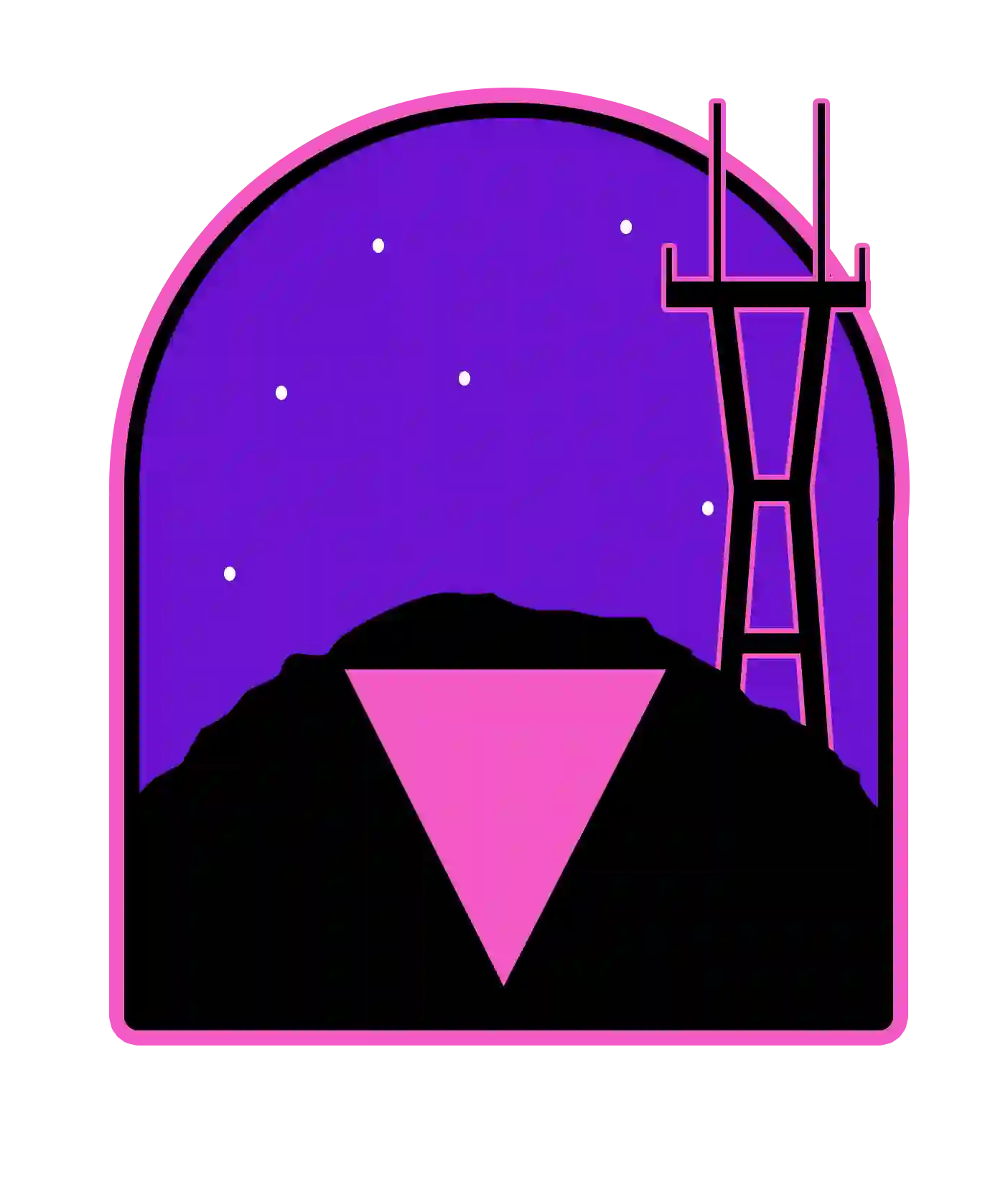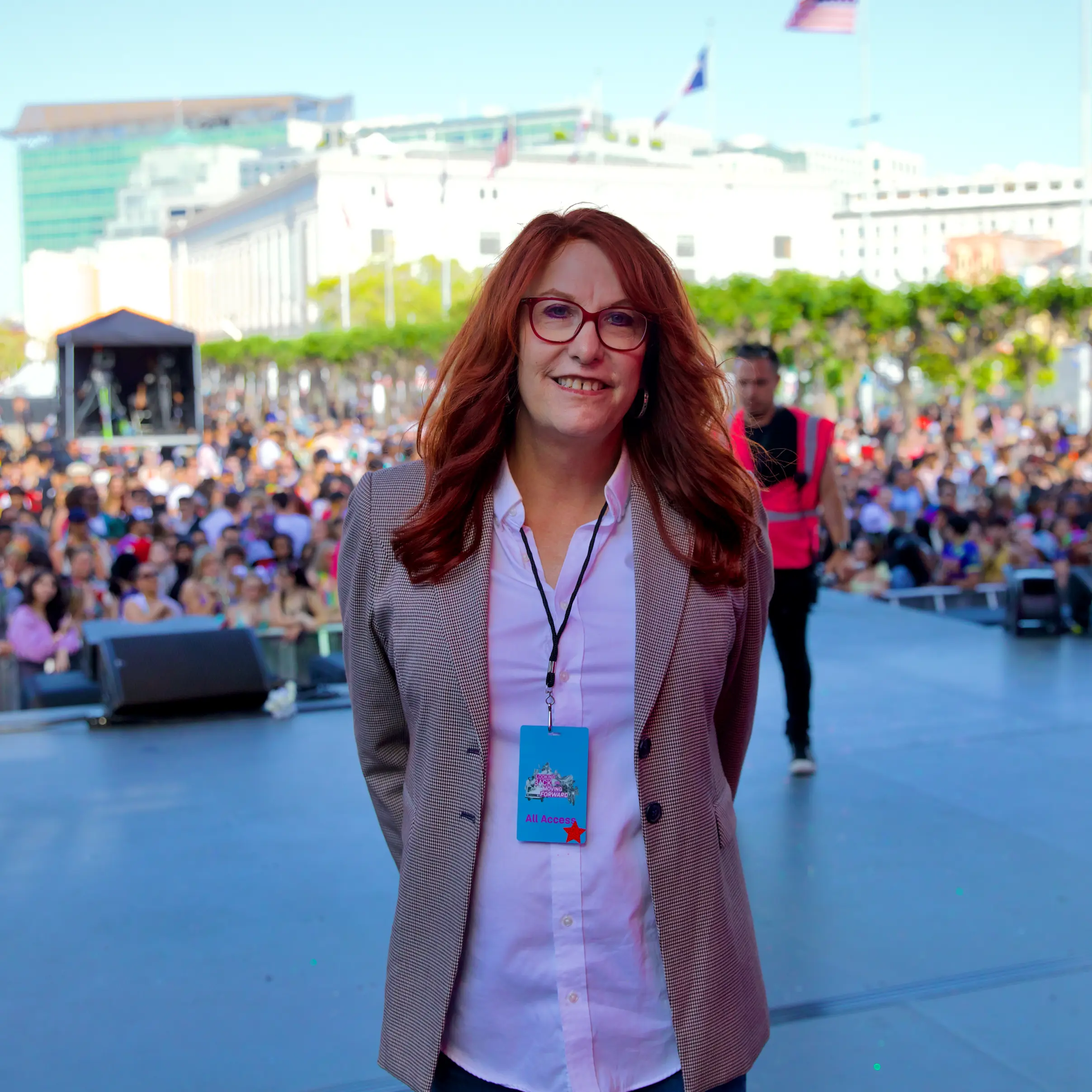Community Partner Spotlight: Openhouse
Karyn Skultety from Openhouse
For 23 years, Openhouse has worked to ensure that older adults in San Francisco’s LGBTQ+ community have access to housing, wellness programs, and a strong sense of dignity and belonging. In a phrase attributed to Openhouse’s Director of Programs and a resident, “Gray is the warmest color.” We spoke with Executive Director Karyn Skultety — who will be stepping down shortly — about where Openhouse is set to go next, and the changing needs of LGBTQ+ seniors.
Openhouse has grown tremendously during your tenure, hasn’t it?

That’s true. We were serving just over 1,000 people — maybe 1,500 — when I got here, and we served over 3,500 the fiscal year before COVID. We’ve really expanded our reach. The models we’re developing are sort of out there ahead of the curve on service stuff, and thankfully, that model is being developed all over the country.

Tell us a little bit about what you do that’s succeeded.
The organization started in 1998 with a dream to build LGBTQ+ elderly housing, and there were twists and turns. Finally, Mercy Partnership got funded as affordable housing in 2010, but because housing takes as long as it does to build in San Francisco, it was another seven years before the doors opened. While we were working on that dream of housing, Openhouse became a trainer to aging-service providers and housing-service providers all over San Francisco and housing service providers. They were talking to people who should be serving LGBTQ+ seniors, but weren’t or weren’t in the right way, and they developed an expertise. This was way before anything I’ve done! It was a way of thinking about what happens in traditional aging services that doesn’t work for queer seniors, and how can we help people in those settings.
This was coming out of the AIDS crisis. Because coming out was so terrible, people didn’t really envision a long life for queer people. We started thinking about not just what kind of services people need but the idea that, when we talk about a community that really believes in older people, what does that look like? We take services and activities, the kind of community-building you might find at your average senior center, and we shake them up and toss them on their head. We figure out what they need to look like, working off the base model: housing and resource navigation, our Friendly Visitor program that matches younger and older people in the queer community. The work I’m really proud to have been part of — as I move from executive director to “adoring fan” — is how we’ve really started to look at aging service models, particularly those that serve seniors who become more frail or at risk of not being able to age at home.
One of the programs that will open this summer will be the Community Day Services program, which provides transport, meals, hands-on help for someone if they need it, with all the really cool activities that Openhouse already does. We partnered with On Lok to develop it, and one of the ways we did so was to not sit in a room by ourselves. We involved queer seniors the whole way so that they’re creating the program alongside us. The answer isn’t that Openhouse provides every single aging service. We’re not going to become a home-care provider or assisted-living facility, or people who provide more medical care. But instead you take all those services and find out what about these models doesn’t work for queer people, and you fix it! When you do that, care improves for everybody.
What are Openhouse’s long-term goals, now that we’re starting to see the end of the tunnel?
We have the Openhouse Commmunity Center at 75 Laguna St., It’s a 7,000-square-foot space across two floors, it has an art studio, a lifelong learning center, and a huge social gathering space that will serve as the location of the Social Day Program, as well as big events and gatherings and parties and drag bingo and whatever else the fuck we decide to do. It’s like no other quote-unquote senior space you’ve ever been in. It’s all light and love, a place where people of all ages are going to want to go. We’ve always held as a value that the queer community is better, stronger, richer, more powerful when seniors are a part of it. You don’t build a community center and just have the seniors come, because if you do that you’ve just built another closet. You build a comm center where the entire queer community wants to come, and you just center seniors and those experiences.
Can you give me an example of something that didn’t work, or that you adapted?
Most aging services use a particular age to identify what a “senior” is. For example, Medicare says you have to be 65. If you’re going to apply for senior housing, you have to be 55 or 62, depending on the building. The Department of Disability and Aging Services says once someone is 60 or older, you’re serving a senior. But early on, I had a lunch with five or six trans seniors who either live at Openhouse or are involved with us, and they said, “We look at someone in the trans community as a senior at age 30 or 35.” When you cut off programs or target it to people of a certain age, you’re basically not serving a whole group of people who consider themselves seniors. So we’ve gotten away from any age definitions. Communities get to define what seniors look like. The more marginalized, or more discriminated against a community is, well, of course people physically age faster, because being oppressed ages you — if you’re lucky to survive.
One thing you do every Pride Weekend is the Trans Intergenerational Brunch. Is that happening in some form this year?
We will absolutely continue our tradition of an Intergenerational Trans Brunch. Trans seniors will be served brunch either at their home, or, if it becomes safer, in some other location. Youth will absolutely be delivering and making sure our trans seniors on the day of Trans March enjoy a delicious brunch, along with more than 600 Pride bags to LGBTQ seniors all over San Francisco. They will get a face-to-face delivery with someone who will stand in front of them and say, “We love you, we miss you, you matter.” That was honestly one of the most meaningful moments of my Pride last year: standing six feet away, masked, and saying, “You are part of our community!”
Past Spotlights
-
Jack Beck, Executive Director of TurnOut
Aug 2021 - Astrid Kane -
Gert McMullin, ‘Mother of the AIDS Quilt’ and SF Pride Volunteer
Jul 2021 - Astrid Kane -
Karyn Skultety from Openhouse
May 2021 - Astrid Kane -
Sister Celine Dionysus from the Sisters of Perpetual Indulgence
Apr 2021 - Astrid Kane -
Sophia Andary from Women's March
Mar 2021 - Astrid Kane -
Okan Sengun from LGBT Asylum Project
Feb 2021 - Astrid Kane




